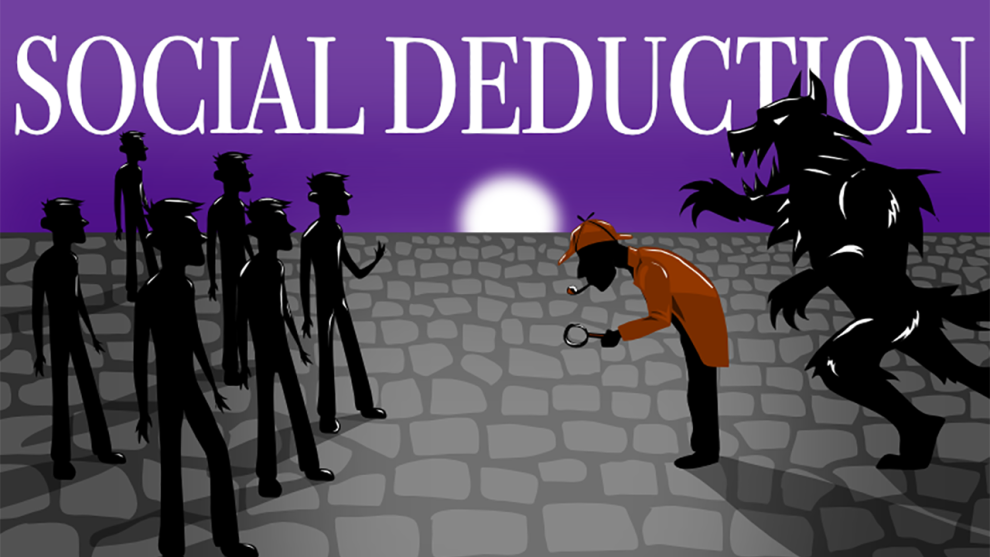The landscape of entertainment is constantly evolving. From the pixelated sprites of early video games to the immersive worlds of VR, we crave experiences that challenge, engage, and connect us. In this ever-changing panorama, a unique genre is rising to prominence: Social Deduction Games.
The Allure of Deception: Core Gameplay and Player Psychology
At the heart of social deduction games lies a core gameplay loop: identifying hidden roles and weeding out imposters (or traitors) before it’s too late. Titles like Among Us, Town of Salem, and Werewolf have popularized this format, each offering unique twists and mechanics.
Players are assigned roles, some innocent (crewmates, villagers) and others deceptive (imposters, werewolves). Through a combination of observation, deduction, and social interaction, players must suss out who belongs to which team. This core concept taps into several key aspects of human psychology:
- The Need for Belonging: Players strive to identify with the “in-group” (innocents) and expose the “out-group” (deceptionists). This social pressure fuels the gameplay loop.
- The Thrill of the Hunt: Deduction becomes a thrilling mental exercise. Players piece together clues, analyze behavior, and use logic to unmask the hidden threat.
- The Power of Influence: Deceptionists must manipulate others through carefully crafted lies and strategic storytelling. This injects an element of psychological warfare.
Beyond the Basics: Innovation and Diversification
The social deduction genre isn’t a one-trick pony. Developers are constantly innovating, introducing new mechanics and themes to keep players engaged. Here are some exciting trends shaping the future:
- Asymmetric Gameplay: Giving distinct advantages to specific roles (e.g., imposters with sabotage abilities) adds depth and strategic tension.
- Evolving Narratives: Storytelling elements can be woven into the gameplay, creating a dynamic and evolving experience.
- Virtual and Augmented Reality Integration: Imagine social deduction games played in immersive virtual environments, further blurring the lines between reality and deception.
Beyond Gaming: Social Deduction in a Broader Context
The appeal of social deduction games extends beyond pure entertainment. These experiences offer valuable insights into human behavior and interaction, with potential applications across various fields:
- Education: Social deduction games can be used to teach critical thinking, communication, and social awareness in educational settings.
- Team Building: These games foster collaboration, trust-building, and conflict resolution skills, making them valuable tools for corporate team building exercises.
- Mental Acuity: The mental gymnastics involved in social deduction games can be a fun way to keep your brain sharp and improve cognitive skills.

The Future of Social Deduction: A Connected and Engaging Entertainment Experience
The rise of social deduction games coincides with another significant trend: the increasing demand for interactive entertainment. Unlike passive forms of entertainment (watching a movie), social deduction games actively involve players in creating the narrative and shaping the outcome.
This interactive quality, coupled with the genre’s core gameplay elements, makes social deduction games perfectly suited for the connected future. Here’s what we can expect:
- Rise of Online Platforms: Expect dedicated online platforms catering specifically to social deduction games, with robust features like matchmaking, voice chat, and leaderboards.
- Mobile Domination: The convenience and accessibility of mobile gaming will likely see a surge in mobile-optimized social deduction titles.
- Live Events and Experiences: Social deduction games could translate beautifully into live events and interactive experiences, blurring the lines between gaming and reality.
Conclusion: Unveiling a New Era of Entertainment
Social deduction games are more than just a passing fad. They represent a compelling new direction for interactive entertainment. By tapping into our innate social instincts and desire for strategic engagement, these games offer a unique blend of excitement, challenge, and social interaction.
As technology evolves and our hunger for immersive experiences grows, social deduction games are poised to become a cornerstone of future entertainment, offering a thrilling glimpse into a world where deception and deduction collide.
















Add Comment